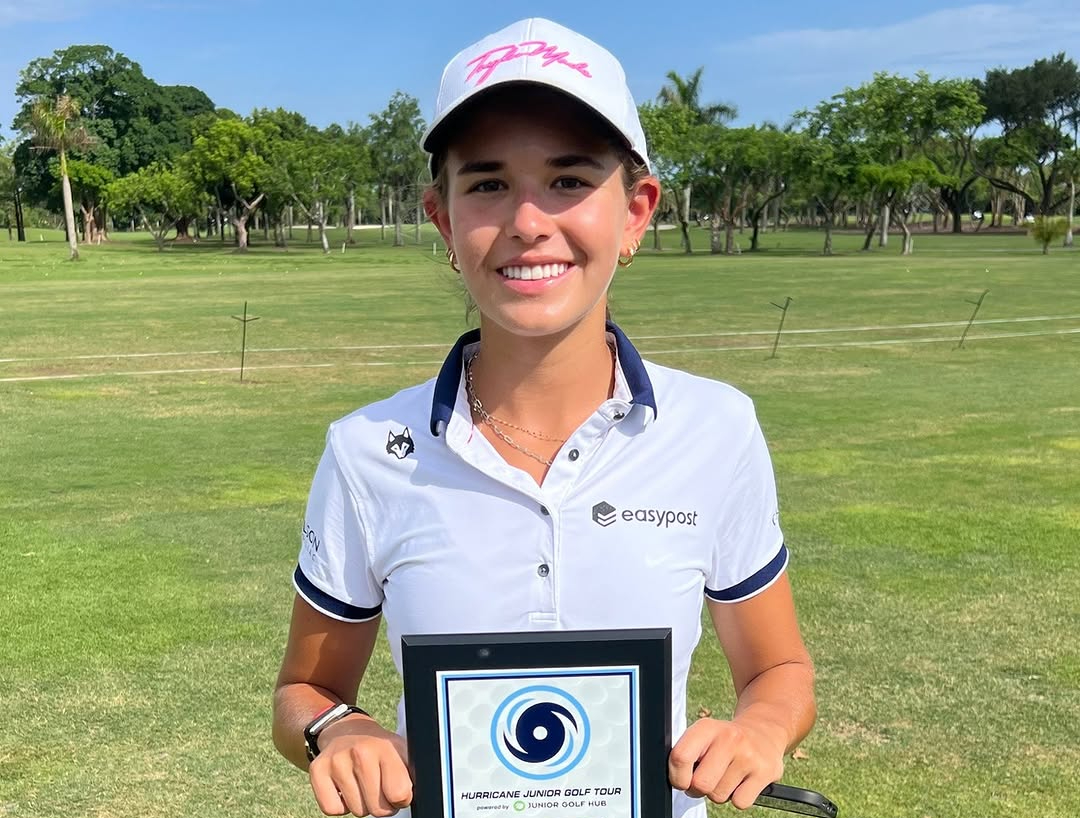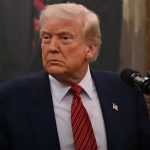Rising in the Fairway: Kai Trump’s Golf Journey from Junior Golfer to LPGA Debut
Kai Trump, granddaughter of Donald Trump, is no longer just a prominent name — she’s stepping into her own spotlight on the golf course. At 18, she has taken a major swing in her sporting journey, moving from junior amateur events into her LPGA Tour debut. Her story is as much about legacy and ambition as it is about talent.
Early Promise and Amateur Roots
Growing up in Florida, Kai developed her game at a young age, competing for The Benjamin School in Palm Beach Gardens. She has already captured club championships, including the 2022 Women’s Club Championship and the 2024 Ladies Club Championship at Trump International Palm Beach, where she plays off a competitive handicap of +0.5.
Her junior golf experience goes beyond local clubs — she competes in national-level tournaments such as those run by the American Junior Golf Association (AJGA), giving her early exposure to serious competition. In August 2024, she made a significant commitment: she verbally pledged to attend the University of Miami and play for its golf team beginning in the 2026–27 season.
Breaking Through: LPGA Debut at The Annika
In November 2025, Kai was granted a sponsor exemption to play in one of the LPGA’s most talked-about events — The Annika at Pelican Golf Club in Florida, a tournament with a $3.25 million purse. It was a high-profile invitation, and one that immediately drew media attention.
Her first round was rough: she shot 13-over-par (83), finishing last in the 108-player field. She bogeyed her first four holes, and despite some strong shot-making, she acknowledged that nerves disrupted her rhythm. “I was definitely more nervous than I expected,” she said, adding that she “hit a lot of great shots just to the wrong spots.”
Yet by the second round, Kai rebounded: she carded a 5-over-par 75, including a memorable 3-wood into the 18th green. Her performance earned praise, with commentators noting that she showed growth, composure and real potential despite the rocky start.
Handling the Spotlight and the Pressure
Kai’s debut didn’t just test her swing — it tested her poise under pressure. With a high-profile surname and a sponsor exemption, she walked into the event with eyes from both supporters and critics. Still, she remained upbeat afterward, calling the experience “amazing” and highlighting that she felt more comfortable as she played, even with the weight of expectation.
Her journey also reflects a savvy personal brand: she has built a large social media following and is developing a lifestyle and apparel brand aimed at young women in sports. That visibility, combined with on-course ambition, creates a powerful platform for future endorsements — especially if she continues to improve.
What It Means for the Business of Golf
Kai Trump’s entrance into the LPGA is about more than just golf. Her profile brings media buzz, attracting attention to the tournament and potentially new audiences — particularly younger fans who may not normally engage with professional women’s golf. For organizers, a sponsor exemption for someone with her name and reach represents a strategic marketing play.
From her perspective, balancing the demands of high-level competition and personal branding could position her for long-term commercial upside. As she heads into collegiate golf at the University of Miami, she is building not only her game but also a business identity that could drive future sponsorship, content deals or lifestyle ventures.
She is effectively treating her talent and her brand as dual assets — and that mindset could shape her financial opportunities in golf and beyond.
Why Her Story Matters Right Now
Kai Trump’s LPGA debut is a turning point: for her growth as a golfer, for how the sport markets itself, and for how new generation athletes manage legacy and business. She’s not just playing her first pro event — she is entering a stage where athletic performance, personal brand and financial potential all converge.
The Business & Financial Angle: Brand Equity on the Greens
Kai Trump’s journey illustrates how modern athletes — even at the amateur stage — are building brand equity before they turn pro. Her social reach, media legacy and competitive skill all combine to make her a compelling investment for sponsors.
A sponsor exemption, in this case, was not just a “free pass” into a tournament — it was a calculated business decision by the LPGA and event organizers. By backing a young, recognizable figure, they lean into visibility and audience engagement. For Kai, the payoff isn’t just in her scorecard — it’s in long-term brand growth.
What she’s doing is building what business strategists call human capital and social capital: she is investing in her own talent and in the relationships, influence and reputation that will underpin her future earning power. As she heads into college golf, her brand could support sponsorship, content partnerships or even a lifestyle business.
Through the lens of wealth planning, backing a name like Kai’s early could be remarkably strategic. If she makes significant progress, she might convert this exposure into financial opportunity. Even if she doesn’t turn pro immediately, her platform could yield returns through education, partnerships and growing fan interest.
What was Kai Trump’s result in her LPGA debut at The Annika?
In her debut, Kai shot 13-over-par (83) in round one, putting her at the bottom of the leaderboard. She then improved to 5-over-par (75) in her second round. While she missed the cut, the round two score showed real composure and growth.
How did Kai Trump get into the LPGA event?
She entered The Annika through a sponsor exemption, meaning she was invited rather than qualifying through standard pro-qualifying channels. This is often used to draw high-profile names or rising talent onto the tour.
What’s her future plan in golf?
Kai has committed to play collegiate golf for the University of Miami, starting in the 2026–27 season. She’s building her amateur experience and her personal brand in parallel, which could position her strongly for professional golf, sponsorships, or business ventures in the future.













